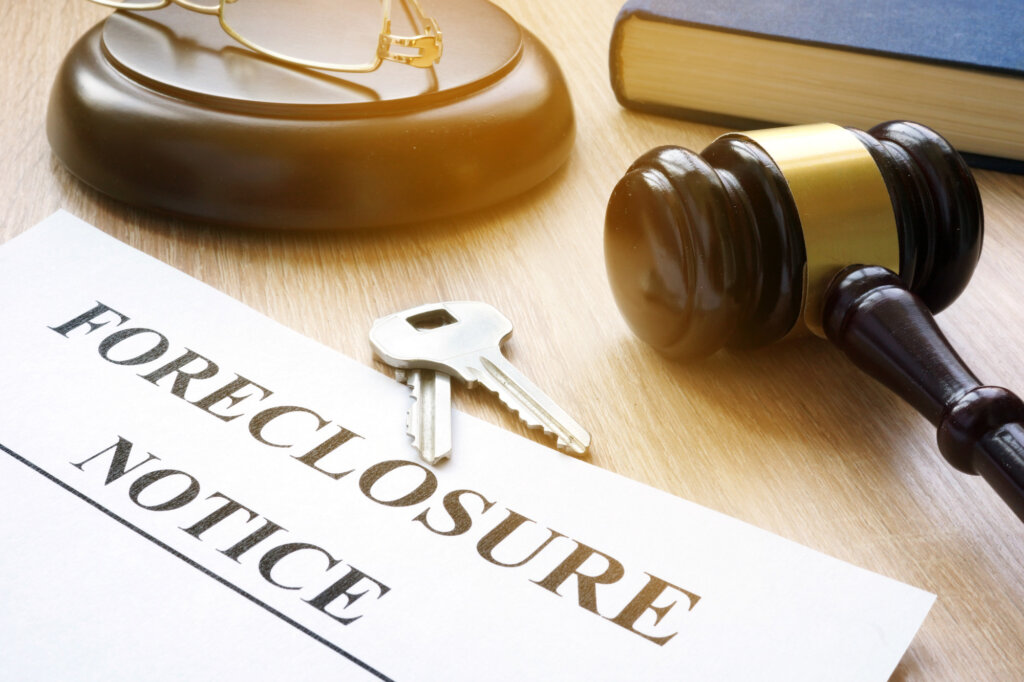
Foreclosure can be a challenging and disheartening experience for homeowners in Texas. Understanding the foreclosure process in Texas, knowing your legal rights, and seeking assistance are crucial steps in defending against foreclosure. This article aims to provide essential resources and legal strategies for homeowners facing the possibility of foreclosure in Texas.
Understanding Foreclosure in Texas
Foreclosure in Texas is the legal process by which a lender takes possession of a property from a homeowner who has failed to make mortgage payments. The foreclosure process is initiated when the homeowner defaults on their mortgage, typically after missing several consecutive mortgage payments.
Homeowners facing foreclosure in Texas have legal rights that provide certain protections during the foreclosure process. It’s important for homeowners to be aware of their rights and options for defending against foreclosure.
When a homeowner falls behind on mortgage payments, the lender will issue a notice of sale, which indicates the date and time of the foreclosure sale. This notice must be sent to the homeowner at least 21 days before the foreclosure sale date, as per Texas state law.
Preventing Foreclosure
There are several options available to homeowners in Texas to avoid foreclosure. Refinancing the home loan, seeking a loan modification, or exploring forbearance agreements with the lender are potential strategies to mitigate foreclosure.
- Refinancing the Home Loan:
- Description: Involves replacing the existing loan with a new one, often offering better terms like a lower interest rate.
- Benefit: Helps homeowners stop foreclosure by resolving defaults and becoming current on mortgage payments.
- Loan Modification:
- Description: Working with the lender to adjust the terms of the existing mortgage.
- Benefit: Enables homeowners to create a payment plan, addressing mortgage arrears and avoiding foreclosure.
- Forbearance Agreements:
- Description: Negotiating temporary relief with the lender, allowing for a pause or reduction in loan payments.
- Benefit: Offers short-term financial relief, giving homeowners time to stabilize their finances and prevent foreclosure.
These strategies provide homeowners in Texas with viable alternatives to foreclosure. It’s crucial to assess individual circumstances and consult with professionals for personalized advice.
Related Articles
- Can You Owe Money After Foreclosure in Texas? Understanding Deficiency Judgments
- Foreclosure in Texas: How to Protect Your Credit and Sell Your Home
- Essential Resources for Avoiding Foreclosure and Stopping Foreclosure in Texas
- Understanding the Difference Between Judicial and Non-Judicial Foreclosure
- Key Differences: Which Is Better Foreclosure or Short Sale?
- Sell Your House Fast and Avoid Foreclosure
Legal Strategies for Defending Against Foreclosure
Understanding the key elements of Texas foreclosure law is crucial for borrowers facing foreclosure. Texas law provides specific protections and procedures that borrowers should be aware of when defending against foreclosure.
Filing for Chapter 13 bankruptcy can impact the foreclosure process by providing an automatic stay, halting foreclosure proceedings and giving homeowners an opportunity to reorganize their debts and catch up on past due loan payments.
Additionally, homeowners can explore alternatives to foreclosure such as a short sale, where the property is sold for less than the remaining mortgage balance, or deed in lieu of foreclosure, where the homeowner voluntarily transfers the property title to the lender to satisfy the mortgage debt.

TX Cash Home Buyers Gives Multiple Offer Options!
Unlock the potential of your home with our multiple offer options. Discover what you qualify for an make informed decisions with confidence.
Seeking Assistance and Resources
The Department of Housing in Texas offers essential resources and programs to assist homeowners facing foreclosure. These resources may include foreclosure prevention counseling, financial assistance programs, and information on foreclosure alternatives.
Moreover, the Texas Property Code provides protections for homeowners facing foreclosure, outlining specific legal requirements and procedures that lenders must adhere to during the foreclosure process. Familiarizing oneself with the protections offered under the Texas Property Code can be instrumental in defending against foreclosure.
Homeowners falling behind on loan payments in Texas can explore various options, including seeking legal assistance from foreclosure attorneys, utilizing state resources, and seeking guidance from housing counselors and advocacy organizations.
Tips to Avoid Foreclosure In Texas
Working closely with a lender is crucial for homeowners seeking to prevent foreclosure. Effective communication and cooperation with the lender can lead to potential solutions such as loan modifications, refinancing, or forbearance agreements.
Creating a payment plan to address home loan arrears is an essential step in avoiding foreclosure. By establishing a feasible plan to catch up on past due payments, homeowners can demonstrate their commitment to meeting their financial obligations and keeping their homes.
Adhering to best practices and seeking timely assistance can help homeowners navigate the complexities of the foreclosure process, protect their property rights, and explore available avenues to avoid foreclosure in Texas.
The Bottom Line-Stop Foreclosure in Texas
In conclusion, defending against foreclosure in Texas requires a comprehensive understanding of legal processes and available strategies. Homeowners should explore options like refinancing, loan modification, and bankruptcy, leveraging protections under the Texas Property Code. Utilizing state resources, housing counseling, and legal assistance is crucial. Effective communication with lenders, adherence to best practices, and the creation of realistic payment plans are key in avoiding foreclosure. Timely action, informed decision-making, and resource utilization empower homeowners to protect their property rights and financial stability in Texas.
Disclaimer: It’s important to note that the information provided is not legal advice, and we are not attorneys. Individuals facing foreclosure should seek guidance from legal professionals for personalized assistance.
Texas Foreclosure Common Questions

Q: What is foreclosure?
A: Foreclosure is the legal process through which a lender terminates a homeowner’s rights to a property, typically due to non-payment of the mortgage.
Q: How can I stop a foreclosure in Texas?
A: You can stop a foreclosure in Texas by exploring options such as loan modification, refinancing, or reaching out to your mortgage lender to discuss alternatives.
Q: What is the foreclosure process in Texas?
A: In Texas, the foreclosure process typically involves a notice of default followed by a 20-day grace period to pay the overdue amount. Subsequently, the lender can proceed with the foreclosure sale.
Q: Are there any state laws in Texas that can help in stopping foreclosure?
A: Yes, Texas law provides certain protections and avenues to help homeowners avoid foreclosure, such as the right to cure the default before the foreclosure sale.
Q: What is a short sale?
A: A short sale is an option to avoid foreclosure wherein the lender agrees to accept less than the full amount owed on the mortgage by selling the property for a lower price.
Q: How does bankruptcy in Texas affect foreclosure?
A: Filing for bankruptcy in Texas can temporarily stop the foreclosure process through an automatic stay, giving homeowners time to work out a repayment plan or other arrangements.
Q: Can I keep my house if I’m behind on mortgage payments?
A: You may be able to keep your home by exploring options such as loan modification, repayment plans, or seeking assistance from foreclosure prevention programs.
Q: What is the role of the Texas Department of Housing in foreclosure prevention?
A: The Texas Department of Housing and Community Affairs offers resources and programs aimed at helping homeowners facing foreclosure, including counseling and education on foreclosure alternatives.
Q: What should I do if I receive a notice of default?
A: If you receive a notice of default, it’s crucial to act promptly by exploring options to bring the mortgage current, seeking legal advice, or contacting your lender to discuss potential solutions.
Q: How can the Consumer Financial Protection Bureau help in avoiding foreclosure?
A: The Consumer Financial Protection Bureau provides information and resources to help consumers understand their rights and options when facing foreclosure, including guidance on working with mortgage servicers and understanding foreclosure processes.
Disclaimer:
The content provided on this blog is for informational purposes only. We are not attorneys or tax professionals. For personalized legal or tax advice, please consult with a qualified professional.
Written by Lisa Martinez, Founder of TX Cash Home Buyers

About The Company
TX Cash Home Buyers helps Texas homeowners sell quickly and simply — even in tough situations like repairs, inherited homes, or financial stress. Founded by Lisa Martinez, we’re known for our local experience, fair offers, and commitment to guiding sellers through off-market sales with clarity and care.




